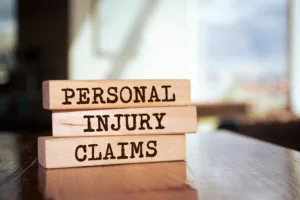Personal injury laws play a vital role in protecting the rights and well-being of those injured by another’s negligence or intentional acts. From car accidents and slip-and-fall incidents to medical malpractice claims, or any other type of personal injury incident, understanding the legal framework surrounding these cases is crucial for victims as well as anyone looking to shield themselves against liability.
It is important to keep in mind that this guide only offers general advice. Personal injury cases can often vary widely based on jurisdiction and circumstance, so consulting a competent personal injury attorney for advice tailored specifically to your unique situation would be wise.
Defining Personal Injury Laws
Definition of personal injury
Personal injuries occur when an individual experiences physical, psychological, or emotional harm as the result of another party’s negligence or intentional acts. They encompass accidents, medical malpractice claims, defective products, injuries in the workplace, and premises liability cases among many other incidents. Personal injury laws provide a legal framework to protect those injured as well as hold those at fault accountable for their actions.
Legal basis for personal injury claims
Personal injury cases typically rely on the legal concept of negligence to support them. Negligence occurs when one party fails to exercise reasonable care, leading to harm to another individual. To establish a personal injury claim, the following elements must generally be proven:
Types of personal injury cases
· Car Crashes: These occur when injuries result from motor vehicle collisions caused by negligent driving practices such as speeding, drunk driving, or distracted driving.
· Slip and fall accidents: These injuries result from hazardous conditions on someone else’s property, such as wet floors or uneven surfaces that need maintenance, as well as inadequate upkeep of such properties.
· Medical Malpractice: Medical malpractice occurs when healthcare providers, hospitals, or facilities deliver subpar care which causes harm to a patient.
· Product Liability: This includes injuries caused by defective or dangerous products, including design flaws, manufacturing issues, or inadequate warnings.
· Workplace injuries: These occur as the result of unsafe working conditions, employer negligence, or failure to implement adequate safety measures on the job.
Elements of a Personal Injury Claim
Duty of care
Duty of care is at the center of personal injury lawsuits and applies to both individuals and entities involved. It typically refers to their legal obligation of exercising reasonable care to avoid foreseeable harm to others, but its exact meaning can depend on the circumstances and relationships involved. For example, drivers must obey traffic laws while operating safely while property owners have a responsibility to provide a safe environment for visitors.
Breach of duty
To successfully bring a personal injury claim to court, it must first be proven that the responsible party breached their duty of care – that is, that they failed to exercise the level of caution a reasonable person would when in similar circumstances. A breach can occur either through intentional acts (like reckless driving) or passive negligence (not repairing hazardous conditions on the property).
Causation
Causation is an essential element in personal injury cases and involves showing how an act or omission directly or substantially contributed to injuries sustained by victims.
Damages
Damages are the actual losses suffered by the victim as a result of the injuries. These can include both economic and non-economic damages.
Common Types of Personal Injury Cases
· Car accidents
· Slip and fall accidents
· Medical malpractice
· Product liability
· Workplace injuries
Compensation and Damages
As part of a personal injury claim, one of your primary goals should be seeking compensation for losses and damages you have incurred. Being aware of all types of compensation available will enable you to assess its value accurately and negotiate an equitable settlement for your case. Here are key aspects of compensation in personal injury cases:
Economic damages
Economic damages refer to the quantifiable monetary losses directly resulting from the injury. These damages aim to reimburse you for the financial impact of the incident.
Non-economic damages
Non-economic damages are subjective losses that are not easily quantifiable but still significantly impact your quality of life. These damages are intended to compensate for the emotional, physical, and psychological toll the injury has caused.
Punitive damages
Punitive damages serve to punish the at-fault party for particularly egregious or intentional conduct and to deter others from engaging in similar behavior. In rare cases, punitive damages may be awarded on top of economic and non-economic damages.
Understanding the Role of Insurance Companies
Dealing with insurance adjusters
As part of your personal injury claim, an insurance adjuster will likely contact you. Keep in mind that insurance adjusters work for insurance companies and their primary goal should be protecting their interests. Therefore, when dealing with them these elements must be taken into consideration:
· Be wary when making statements: Insurance adjusters may try to obtain recorded statements or ask questions that can be used against you to lessen your claim. Therefore, it is wise to be wary about what statements or questions they ask to minimize it further. It would be advisable to consult with an attorney prior to providing any statements.
· Be wary of settlement offers: Insurance adjusters may make early settlement offers that don’t fully reflect the true value of your claim, so it is vital to carefully evaluate any offers from insurers and consult with an attorney regarding if any offer is fair and adequate for settlement purposes.
Settlement negotiations
In many personal injury cases, settlement negotiations between your attorney and the insurance company will take place. Settlement negotiations aim to reach a resolution without going to trial. During this process:
· Assessing the value of your claim: Your attorney will help evaluate the value of your claim based on the extent of your injuries, the impact on your life, and the economic and non-economic damages you have suffered.
· Counteroffers and negotiations: Your attorney will present a demand to the insurance company, outlining your claim and requested compensation. The insurance company may respond with a counteroffer, starting a negotiation process. Your attorney will advocate for your best interests, aiming to reach a fair settlement.
The possibility of going to trial
If settlement negotiations fail or an insurance company refuses to offer an equitable settlement offer, your case could move to trial. Presenting before a judge or jury who will then determine its outcome.
Your attorney will prepare your case by gathering evidence, interviewing witnesses, presenting arguments, and gathering opinions for a positive verdict on your behalf.
Keep in mind that insurance companies have teams of attorneys representing their interests. Having an experienced personal injury attorney represent your needs will level the playing field and protect your rights throughout this process. Your lawyer will handle communications with the insurer while leaving you free to focus on recovering.
Hiring a Personal Injury Attorney
Navigating the complex waters of personal injury law requires expert legal guidance, so having access to an attorney specializing in this area can be invaluable. A knowledgeable personal injury lawyer will offer essential support and advocacy throughout the legal process. Here are key points when hiring a personal injury attorney:
Importance of legal representation
Personal injury lawyers specialize in the laws and regulations surrounding personal injury claims. They understand their complexity, are experienced at building strong cases, can effectively negotiate with insurance companies, and represent clients if needed in court if needed. Having legal representation offers several benefits, including:
· Legal knowledge: Attorneys have extensive knowledge of personal injury laws, statutes of limitation, and filing requirements that pertain to personal injury cases. With this expertise comes tailored legal advice tailored specifically for your circumstances.
· Case Evaluation: Your attorney can assess the strength and potential value of your claim by identifying any challenges to it and offering realistic expectations regarding what steps should be taken next. They can advise you accordingly.
· Collecting Evidence: Lawyers possess the resources and know-how necessary to gather evidence in support of your claim. They can collect medical records, accident reports, witness statements, and expert opinions for use as building blocks of their arguments on your behalf.
· Negotiating Settlements: Attorneys are adept negotiators who can engage in settlement negotiations with insurance companies on your behalf, fighting for your rights and advocating for an adequate and fair settlement that fully compensates you for injuries sustained and losses suffered.
· Trial Representation: Should your case go to trial, an attorney will represent you before the judge and present your evidence while cross-examining witnesses and arguing on your behalf to achieve a favorable result and increase your odds of success.
Factors to consider when choosing an attorney.
When selecting a personal injury attorney, consider the following factors:
· Experience: Select an attorney with extensive knowledge in personal injury law who has successfully managed similar cases as yours in the past.
· Reputation: Check an attorney’s reputation and read client reviews or testimonials before hiring. A highly regarded attorney will have an impeccable name within their legal community as well as an established history of satisfied clients.
· Communication and Accessibility: Make sure your attorney communicates clearly, listens attentively to your concerns, and responds promptly when answering inquiries about legal services.
· Resources: When considering which attorney best fits the needs of your case, take note of their resources available – this may include an experienced team, access to expert witnesses, and access to professional networks.
Attorney’s fees and payment arrangements
Personal injury attorneys typically operate on a contingency fee basis, meaning they only get paid if they successfully recover compensation for you. Their fees typically represent a percentage of any settlement or court award received as payment from their clients. It’s essential to discuss their fee structure as well as any additional costs or expenses before hiring one to ensure transparency and avoid surprises down the line.
Resolving Personal Injury Cases
Resolving a personal injury claim involves reaching a satisfactory outcome that compensates the injured party and holds those at fault accountable. There may be various methods used for reaching this conclusion depending on the details and parties involved in each individual case. Here are common ways personal injury cases are resolved:
Settlement agreements
Settlement agreements are the most common way to resolve personal injury cases. A settlement occurs when the parties involved negotiate a mutually acceptable resolution without going to trial. Settlement negotiations often involve discussions between your attorney and the insurance company or the opposing party’s legal representative.
Mediation and arbitration
Alternative dispute resolution techniques like mediation or arbitration may be utilized in some instances to reach a solution.
Mediation: Mediation involves engaging the assistance of a neutral third party as a mediator to assist parties in reaching an acceptable settlement agreement. They facilitate communication and negotiation among all involved, helping find common ground without exerting their power over decisions, and guiding parties toward finding mutually acceptable resolutions.
Arbitration: Arbitration is a method wherein one or more arbitrators serve as private judges to adjudicate on cases, reviewing evidence presented from both sides before rendering their verdict, which can either be binding or non-binding depending on consensus among all involved.
Going to trial
If settlement negotiations or alternative dispute resolution methods prove ineffective, a case may progress to trial. At trial, your case will be presented before a judge or jury who will then render their verdict after carefully considering all the evidence and arguments presented from both sides.
Your personal injury case resolution strategy will depend on several factors, including its strength, cooperation from opposing parties, and desired outcome. Your personal injury attorney at Accidental Medical Group will guide you through your available options and discuss potential advantages and disadvantages before helping determine an optimal course of action together with you.
Conclusion
Understanding personal injury laws is integral when dealing with the complex nature of personal injury claims. With this comprehensive guide as your guidebook, you now possess an in-depth knowledge base to better comprehend the legal principles, procedures, and considerations involved with personal injury litigation cases.
Understanding personal injury and its legal basis to learning more about its components such as claims and common types of cases as well as steps after injuries gives you valuable insights into this area of law. We hope that by reading our article, you have gained a greater appreciation of compensation, damages, and the significance of adhering to statutes of limitation deadlines, as well as a deeper understanding of the role insurance plays, the process for hiring a personal injury attorney, and alternate ways of resolving personal injury claims.





